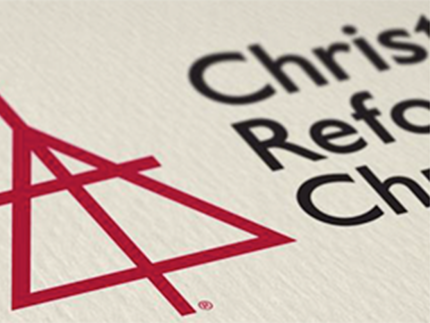Changes to Several CRCNA Ministries

Nine ministries of the Christian Reformed Church in North America are undergoing a reorganization focused on better serving local congregations, increasing efficiency, and reducing overall costs.
“Following implementation of the SALT report, new financial realities after Reimagining Ministry Shares, and shifting back to work in the office after two years of COVID-pandemic adaptation, the time had come to carefully examine how CRCNA ministries -- especially those designed to serve and equip local congregations -- were organized,” said Lis Van Harten, U.S. director of congregational ministries.
The ministries affected by this structural change include Chaplaincy and Care Ministry, Disability Concerns, Diversity, Faith Formation Ministries, Pastor Church Resources, the Office of Race Relations, Safe Church Ministry, the Office of Social Justice, and Worship Ministries. In the new structure, these ministries will all function as one entity, director-level positions have been eliminated, and staff from all nine areas will be co-led by Van Harten (U.S.) and Lesli van Milligen (Canada) as they work in one of five cross-ministry areas.
“We want to provide a holistic response to each congregation's needs and not offer a piecemeal approach where the church leader has to contact multiple ministries to respond to all of the issues at their congregation. We feel that this reorganization is the best way to go about this,” added Lesli van Milligen, Canadian director of congregational ministries.
The reorganization is designed to place a congregation’s particular context, rather than the office or ministry program, as the starting point for discerning how best to respond to needs.
“CRCNA staff will continue, in some capacity, to carry out the mandates and tasks given them by synod; however, they will do this in collaboration with each other, sharing resources such as staff time, communications, fundraising, event planning, and marketing of resources. The intent will be to operate as one congregation-focused ministry rather than nine individual organizations,” said Van Harten.
The staff who served as directors for these ministries have not been laid off. Instead, they have been asked to shift to a supervisory or program role rather than a director position, and any vacancies such as that for the director of Race Relations and Social Justice will not be filled. A few part-time positions have been eliminated, and those staff have been thanked for their years of service.
Other staff from these nine areas have shifted to working on new cross-ministry teams. They will focus on operations, resourcing, content, consultation, and regional engagement rather than concentrating mainly on abuse prevention, race relations, social justice, and so on.
“Breaking down these ministry silos will allow for staff to better connect with and serve local congregations. These changes will also result in greater efficiency of staff time, less duplication of projects/efforts, and intentional and ongoing assessment of ministry as a whole,” said van Milligen.
People who currently serve as volunteers in their congregation or classis or who have been receiving support and resources from one of these nine ministries will continue to be equipped for their specialized roles whether they are safe church team members, disability advocates, worship coaches, youth champions, intergenerational mentors, regional pastors, or in other positions. However, they might receive this support from a different person or in a different format than in the past.
Similarly, advisory teams that had previously supported the nine ministries – such as the committee to provide guidance and support to the Office of Social Justice – will also continue.
“These teams, made up of folks from the churches, will continue to inform and guide the work. Their input is invaluable to us and will continue to be needed,” said Van Harten.
In addition, websites for the nine areas will continue, and resources will be made available and searchable on The Network.
This transition began with changes to staff job descriptions, supervisors, and team assignments on July 1. Changes to ministry logos have also gone into effect, and remaining transitions will take place over the following months. In the meantime, anyone with questions or concerns about any of these ministry areas is encouraged to reach out to their former points of contact, and staff will redirect them as necessary.


